Waste tire shredders are core equipment in the tire recycling industry chain, capable of breaking down waste tires into reclaimed materials such as rubber powder and rubber granules—offering both environmental value and resource circular benefits. As global "dual carbon" goals advance, demand for efficient, intelligent shredding equipment continues to grow.
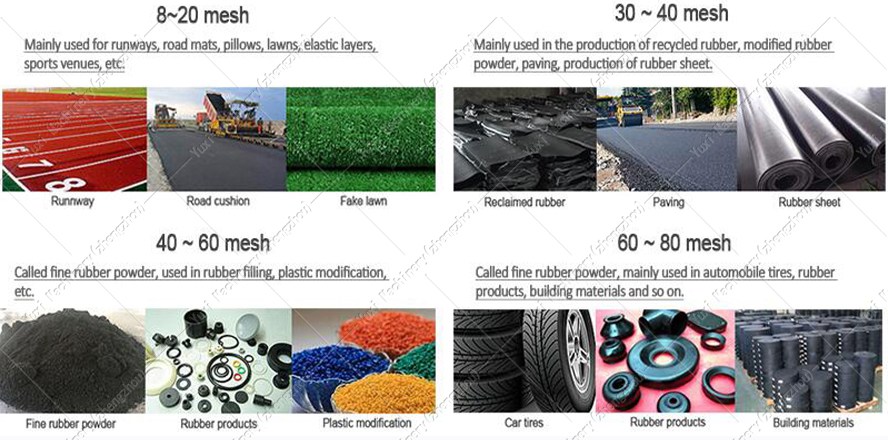
According to market research future's《Tire Shredder Market Report》,Key growth drivers include industrial automation, waste monetization, and government-led recycling programs.
1. Understanding Recycling Equipment and Machinery
Recycling equipment refers to machinery systems specifically designed to process and reuse waste materials, converting them into reusable resources. These systems are widely used in industries such as manufacturing, automotive, construction, and packaging.
Main Types of Recycling Machinery:
• Plastic Recycling Equipment: Including PET/HDPE recycling machines, pelletizers, and washing lines;
• Metal Recycling Equipment: Crushers, balers, and conveyors for ferrous and non-ferrous metals;
• E-Waste Recycling Machinery: Advanced recovery systems for circuit boards and precious metals;
• Food Waste Recycling Equipment: Composting and anaerobic digestion technologies for organic waste;
• Construction Waste Recycling Machinery: Crushers, sorting systems, and magnetic separators for waste disposal;
• Tire Recycling Equipment: Centered on waste tire shredders, paired with sorting and grinding equipment to enable tire resource recycling.
2. Understanding Waste Tire Shredder Recycling Equipment
Waste tire shredders are a core type of tire recycling equipment, specifically designed to process various waste tires (passenger car tires, commercial vehicle tires, engineering tires, etc.). Through crushing and sorting processes, they convert tires into reusable resources such as rubber powder, rubber granules, and steel wire—serving as key equipment for tire circular economy, widely used in tire recycling plants and reclaimed rubber enterprises.
3. Leading Waste Tire Shredder Manufacturers
Below are industry-leading enterprises with mature technologies and solutions in tire recycling equipment:
1. Forrec srl
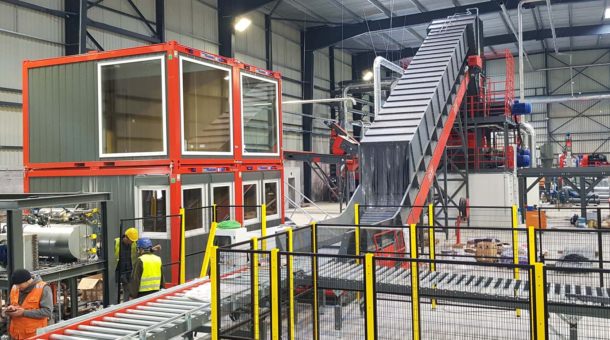
◦ Headquarters: San Giustina in Colle, Italy
◦ Founded: 2007
◦ Key Differentiators:
◦ Modular shredding system design, compatible with tires of different specifications (passenger/engineering);
◦ Integrated rubber powder sorting and magnetic separation functions, enabling "shredding + purification" integration;
◦ 15% lower energy consumption than industry averages, compliant with EU environmental standards.
◦ Advantages:
◦ High equipment flexibility, quickly adaptable to different materials for multi-category recycling scenarios;
◦ Full-process environmental compliance, no need for additional sorting/dust removal equipment, reducing supporting costs;
◦ Comprehensive service network in European markets, with fast after-sales response.
2. BHS-Sonthofen
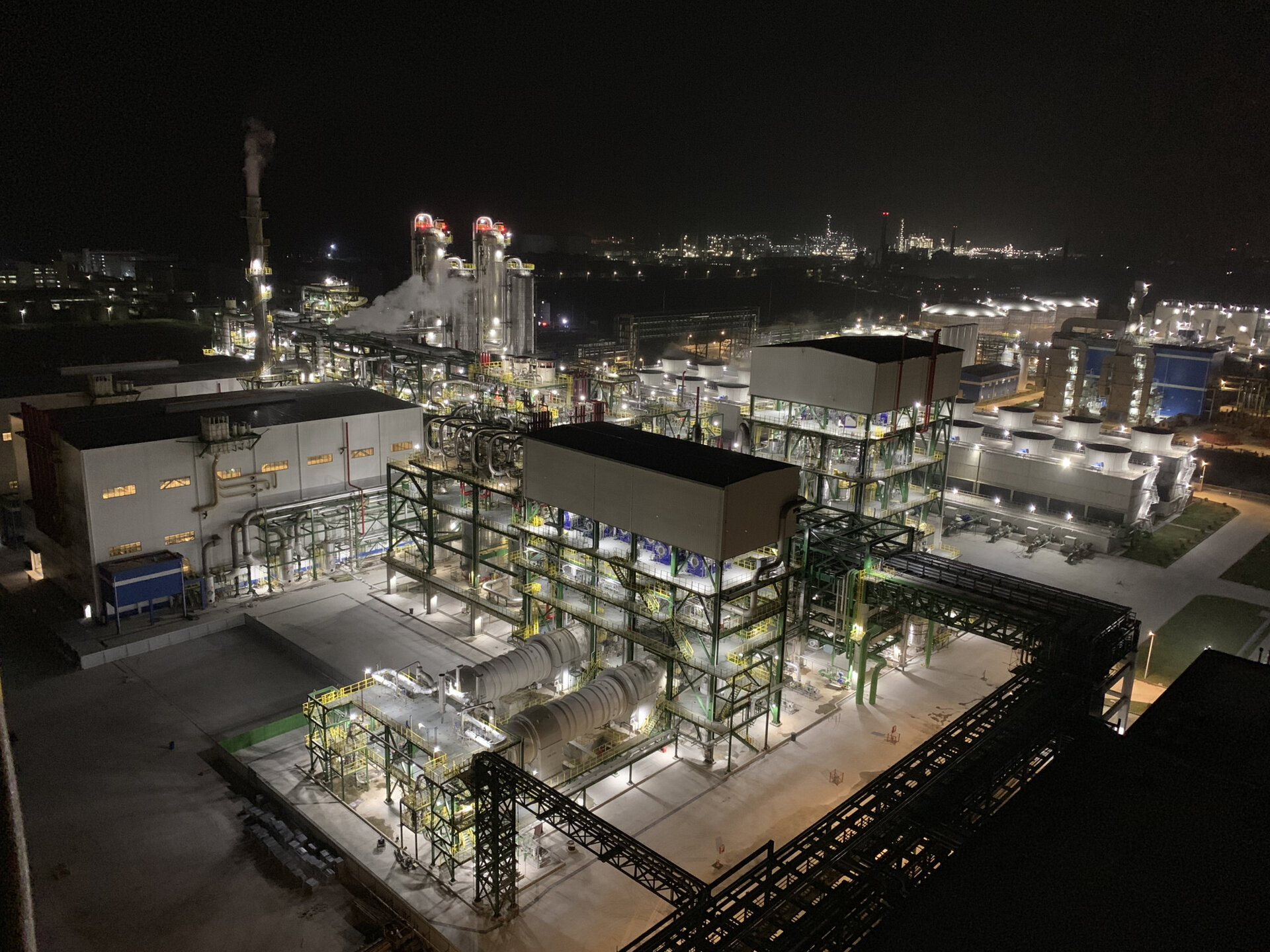
◦ Headquarters: Sonthofen, Germany
◦ Founded: 1607
◦ Key Differentiators:
◦ Thermal separation technology, removing steel wire and fibers during shredding;
◦ High-wear-resistance equipment, suitable for high-load industrial tire recycling;
◦ Full-lifecycle maintenance solutions, with equipment service life exceeding 15 years.
◦ Advantages:
◦ High stability of industrial-grade equipment, capable of continuous high-load operation for large-scale recycling plants;
◦ Thermal separation technology reduces subsequent processing steps, improving reclaimed material purity;
◦ Centuries of brand technical accumulation, with equipment durability far exceeding industry averages.
3. Zhengzhou Yuxi Machinery
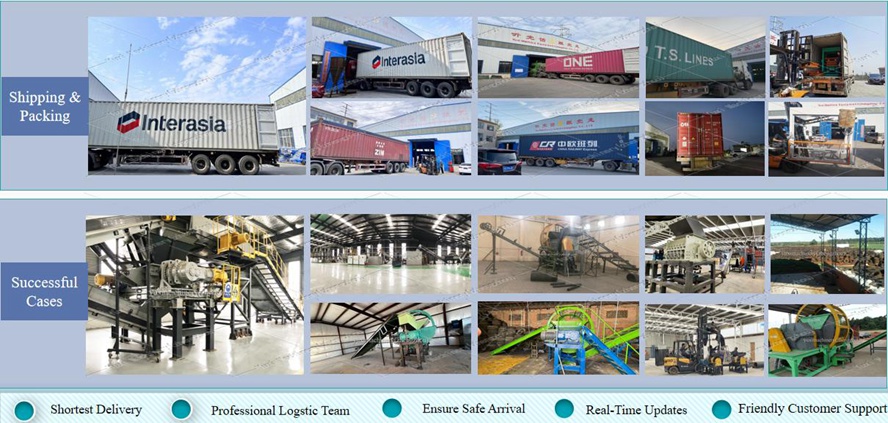
◦ Headquarters: Zhengzhou, Henan, China
◦ Founded: 2012
◦ Key Differentiators:
◦ Self-developed "dual-shaft shear shredding + low-temperature grinding" combined technology, achieving rubber powder fineness up to 80 mesh;
◦ Equipment adapted to mixed waste tire characteristics in China, supporting mixed shredding of multiple materials;
◦ High cost-effectiveness: 30% lower procurement cost than imported brands, with a delivery cycle of only 20 days.
◦ Advantages:
◦ Strong local adaptability, perfectly matching material complexity in China’s recycling market;
◦ Significant cost advantages, lowering initial investment thresholds for small and medium-sized recycling enterprises;
◦ Dense domestic service network, with fast and low-cost after-sales maintenance.
4. Morita Holdings

◦ Headquarters: Osaka, Japan
◦ Founded: 1907
◦ Key Differentiators:
◦ Intelligent shredding system, automatically adjusting rotational speed via sensors to match tire hardness;
◦ Equipment noise below 70 dB, compliant with environmental requirements for urban-area recycling plants;
◦ Partnerships with automakers, providing closed-loop solutions for "tire recycling + reclaimed material supply."
◦ Advantages:
◦ High intelligence level, reducing manual operation and labor costs;
◦ Low-noise design enables placement in urban suburbs, shortening material transportation distances;
◦ Closed-loop solutions help clients connect the "recycling-reclamation-application" chain, enhancing commercial value.
5. Danieli Centro Recycling

◦ Headquarters: Brescia, Italy
◦ Founded: 1914
◦ Key Differentiators:
◦ Large-scale shredding equipment, with single-unit daily processing capacity of up to 50 tons of waste tires;
◦ Equipped with dust collection systems, meeting strict air pollutant emission standards;
◦ Reclaimed rubber powder can directly connect to rubber product production lines, reducing intermediate processing links.
◦ Advantages:
◦ Strong large-scale processing capacity, suitable for large industrial recycling projects;
◦ Comprehensive environmental configurations, enabling fast regional environmental approval;
◦ Direct material supply capability helps clients achieve seamless "shredding-application" connection, improving efficiency.
4. Core Advantages of Waste Tire Shredders
• Resource Circulation: Convert waste tires into high-value rubber powder for use in rubber products, asphalt modification, etc.;
• Environmental Compliance: Reduce soil and air pollution caused by tire landfilling/incineration;
• Efficiency Improvement: Automated equipment replaces manual sorting, increasing processing efficiency by 4-6 times;
• Cost Control: Reclaimed material procurement costs are lower than new materials, reducing costs for downstream enterprises.
5. Comparison Table of Leading Enterprises
| Company | Specialization Area | Main Products | Core Technology Type | Industry Focus | Core Advantages |
| Forrec srl | Tire Recycling | Modular Shredders | Integrated Sorting Technology | Small-to-Medium Recycling Plants | Flexible Adaptability + Full-Process Environmental Compliance |
| BHS-Sonthofen | Industrial-Grade Recycling | Thermal Separation Shredding Systems | Wear-Resistant Mechanical Technology | Large-Scale Recycling Plants | High-Load Stability + Long Service Life |
| Zhengzhou Yuxi Machinery | Tire/Mixed Materials | Dual-Shaft Shear Shredders | Low-Temperature Grinding Technology | Domestic Small-to-Medium Recyclers | Local Adaptability + High Cost-Effectiveness |
| Morita Holdings | Intelligent Recycling | Sensor-Controlled Shredders | Intelligent Control Systems | Urban-Area Recycling Plants | Low Noise + Closed-Loop Commercial Solutions |
| Danieli Centro | Large-Scale Recycling | Large Shredding Production Lines | Dust Collection Technology | Industrial Recycling Projects | High Capacity + Direct Material Supply |
6. Frequently Asked Questions
1. Q: What is the processing capacity of waste tire shredders?
A: Small equipment processes 5-10 tons per day, while large production lines can reach over 50 tons—depending on equipment model and tire specifications.
2. Q: What are the application scenarios for shredded rubber powder?
A: It can be used to produce rubber floor tiles, modified asphalt, reclaimed rubber products, etc. High-fineness rubber powder can even replace new rubber materials.
3. Q: What should domestic enterprises consider when purchasing equipment?
A: Prioritize matching equipment capacity to recycling scale (avoid overcapacity), and pay attention to environmental indicators (e.g., dust, noise).
7. Future Outlook
• Technological Trends: AI intelligent control (automatic material identification, parameter adjustment) and low-carbon shredding (new energy-driven) will become mainstream;
• Model Innovation: "Equipment sales + operation services" integrated solutions will reduce initial investment for small and medium-sized recycling enterprises;
• Policy Drivers: Implementation of China’s "Extended Producer Responsibility System" will push tire enterprises to deploy recycling equipment, further expanding market demand.
8. Conclusion
Waste tire shredders are key equipment for tire circular economy, while diverse types of recycling machinery (plastic, metal, tire, etc.) cover resource recycling needs for all waste categories. Domestic enterprises like Zhengzhou Yuxi Machinery gain market advantages through local adaptability and cost-effectiveness, while international brands excel in technical depth. In the future, technological innovation and model upgrading will drive the recycling equipment industry toward greater efficiency and environmental friendliness.
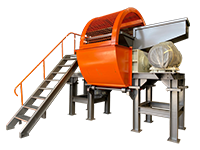 Shredding Machine
Shredding Machine
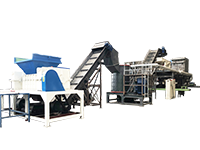 Waste Recycling Line
Waste Recycling Line
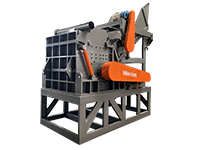 Optional Equipment
Optional Equipment






